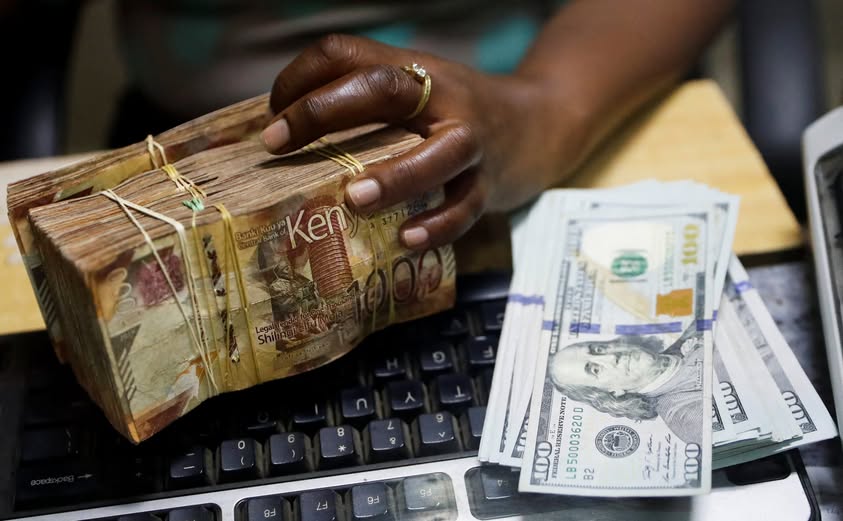Business
EU Adds Kenya to High-Risk Money Laundering Watchlist as Financial Scrutiny Intensifies

Kenya faces enhanced due diligence requirements for EU financial transactions as commission cites persistent deficiencies in anti-money laundering framework
The European Commission has escalated pressure on Kenya’s financial sector by adding the East African nation to its high-risk countries list for money laundering and terrorism financing deficiencies, a move that will subject Kenyan entities to heightened scrutiny in their financial dealings with the 27-member European Union bloc.
The designation, announced Thursday, places Kenya alongside other developing nations including Algeria, Angola, Côte d’Ivoire, Lebanon, and Venezuela on the commission’s updated watchlist. Within Africa, Kenya joins an extensive roster that already includes Nigeria, South Africa, Tanzania, and the Democratic Republic of Congo, among others.
Enhanced Due Diligence Requirements
Under the new classification, EU financial institutions and other obliged entities must now apply enhanced customer due diligence measures when establishing business relationships or conducting transactions with Kenyan counterparts. This requirement stems from Article 18a of EU Directive 2015/849, which mandates stricter oversight of high-risk jurisdictions.
“The commission has carefully considered the concerns expressed regarding its previous proposal and conducted a thorough technical assessment, based on specific criteria and a well-defined methodology,” said Maria Luís Albuquerque, Commissioner for Financial Services and the Savings and Investments Union.
The decision follows Kenya’s continued presence on the Financial Action Task Force (FATF) grey list since February 2024, indicating that the country has yet to fully address critical deficiencies in its anti-money laundering and counter-terrorism financing (AML/CFT) framework.
Economic Implications for Kenya-EU Trade
The watchlist designation comes at a time when Kenya’s trade relationship with the EU has been strengthening. According to Kenya National Bureau of Statistics data, the country’s exports to EU nations reached Sh156.93 billion in 2024, up from Sh150.08 billion the previous year. This represents a significant 58 percent increase from the Sh99.29 billion recorded in 2020.
However, the enhanced scrutiny requirements could potentially complicate financial transactions and increase compliance costs for Kenyan businesses operating in the European market. While imports from the EU have shown more modest growth at 22.3 percent over five years to Sh249.73 billion in 2024, the watchlist status may impact the ease of conducting these transactions.
Progress and Persistent Challenges
Despite the setback, Kenya has made notable strides in strengthening its AML/CFT regime since its FATF grey-listing. The country has completed a terrorism financing risk assessment and brought its Targeted Financial Sanctions framework for proliferation financing into compliance with international standards.
However, significant gaps remain that require urgent attention. The EU and FATF expect Kenya to address several outstanding issues, including:
- Improving risk-based AML/CFT supervision of financial institutions
- Adopting a comprehensive legal framework for licensing and supervising virtual asset service providers
- Designating appropriate authorities for trust regulation and beneficial ownership information collection
- Enhancing the quality and utilization of financial intelligence reports
- Increasing money laundering and terrorism financing investigations and prosecutions
Regional Context and International Pressure
Kenya’s inclusion reflects broader challenges facing African nations in meeting international financial compliance standards. The continent accounts for a significant portion of the EU’s high-risk list, highlighting systemic issues in financial governance and regulatory frameworks across the region.
The commission did provide some positive news by delisting several jurisdictions, including Uganda, Senegal, and the United Arab Emirates, demonstrating that countries can successfully address deficiencies and regain good standing.
The watchlist designation intensifies pressure on Kenyan authorities to accelerate reforms in their financial oversight mechanisms. With the country’s growing economic ties to Europe and its position as a regional financial hub, addressing these deficiencies has become increasingly critical for maintaining international competitiveness.
The development underscores the interconnected nature of global financial systems and the importance of robust anti-money laundering frameworks in maintaining access to international markets. For Kenya, the path forward requires continued collaboration with FATF and sustained commitment to implementing comprehensive financial sector reforms.
As Kenya works to address these challenges, the business community will be watching closely to understand the practical implications of enhanced due diligence requirements and their potential impact on the country’s expanding trade relationships with European partners.
Kenya Insights allows guest blogging, if you want to be published on Kenya’s most authoritative and accurate blog, have an expose, news TIPS, story angles, human interest stories, drop us an email on [email protected] or via Telegram
-

 Grapevine2 weeks ago
Grapevine2 weeks agoAlleged Male Lover Claims His Life Is in Danger, Leaks Screenshots and Private Videos Linking SportPesa CEO Ronald Karauri
-

 Grapevine1 week ago
Grapevine1 week agoRussian Man’s Secret Sex Recordings Ignite Fury as Questions Mount Over Consent and Easy Pick-Ups in Nairobi
-

 News5 days ago
News5 days agoTHE FIRM IN THE DOCK: How Kaplan and Stratton Became the Most Scrutinised Law Firm in Kenya
-

 Investigations7 days ago
Investigations7 days agoMulti-Million Dollar Fraud: Three Kenyans Face US Extradition in Massive Cybercrime Conspiracy
-

 Economy6 days ago
Economy6 days agoIran Demands Arrest, Prosecution Of Kenya’s Cup of Joe Director Director Over Sh2.6 Billion Tea Fraud
-

 Business6 days ago
Business6 days agoA Farm in Kenya’s Rift Valley Ignites a National Reckoning With Israeli Investment
-

 Africa1 week ago
Africa1 week agoFBI Investigates Congresswoman Ilhan Omar’s Husband’s Sh3.8 Billion Businesses in Kenya, Somalia and Dubai
-

 Business2 weeks ago
Business2 weeks agoM-Gas Pursues Carbon Credit Billions as Koko Networks Wreckage Exposes Market’s Dark Underbelly















